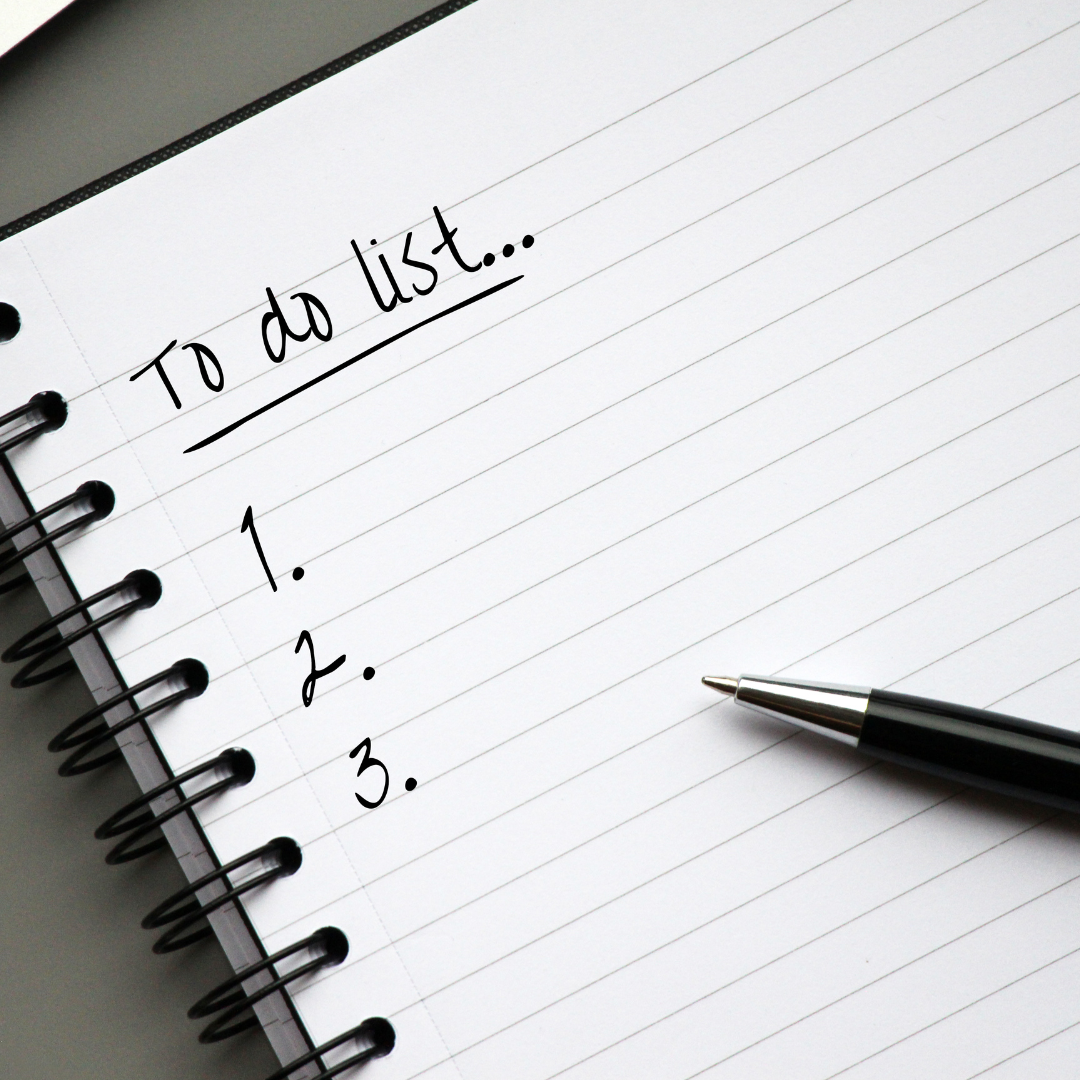Back to school is a crucial time that requires good organization. Whether it's preparing the child's living space, establishing menus for two weeks or planning medical appointments, every detail counts. It is also essential to get school supplies in advance and manage the purchasing process well. Discover our practical advice for a successful return to school.
Preparation: the key to a successful return to school
Effectively preparing for the start of the school year means anticipating the September rush. To achieve this goal , you must first define what is essential for you and your family. Consider establishing a schedule for the first few weeks of the school year. It should include class hours, but also transportation, leisure and rest times.
It’s also a good idea to plan morning and evening routines . These daily habits help your child feel secure and better manage their time. They can include activities such as reading, brushing their teeth, or tidying up their room.
Beyond organizing the days, think about preparing everything that is needed for classes. This includes the list of supplies , but also clothing, meals, and extracurricular activities. If you have multiple children, it may be helpful to create a tracking chart for each member of the family.
Finally, don't forget to take care of yourself. Back to school is a stressful time for parents, so it's essential to take care of your well-being. Plan moments of relaxation and fun, alone or with family, to avoid burnout.
Here are some points to consider for successful back-to-school preparation:
- Setting goals for the school year
- Establish daily routines
- Prepare supplies and clothing
- Organize meals and extracurricular activities
- Take care of your well-being.
How to organize school supplies properly?
The school supplies list: an essential tool
The school supplies list is one of the key elements for a well-organized back-to-school season. This essential tool serves as a guide to acquire all the necessary items for the upcoming school year. Schools and establishments generally develop a list adapted to each level, while taking into account important factors such as the family budget , the weight of the schoolbag and the ecological footprint .
- Family budget : Recommended products should be affordable for all families.
- The weight of the schoolbag : To avoid back problems among students, the list of supplies must be limited and simplified.
- The ecological footprint : We favor sortable and recyclable products.
It is generally advisable to consult this list well before the start of the school year to have time to compare prices, choose the items that please your child and avoid the crowds of the last days. The supplies can be classified into different categories such as writing supplies , essentials in the pencil case , basic notebooks and other supplies specific to the student's level of study.
Tips for managing school supplies
To properly manage school supplies, start by taking inventory of what you already have. Items like pencils, rulers, or scissors can be reused from year to year.
- Identify supplies that are in good condition and those that need to be replaced.
- Create a specific shopping list based on what is missing.
Next, set a budget for supplies.
- Consider the cost of basic items, but also specific supplies like calculators or dictionaries.
To save money, consider buying in bulk certain items that are used throughout the year, such as paper, pens or notebooks.
Favor online sales or wholesale stores to take advantage of advantageous prices.
Finally, don't forget to mark the supplies with your child's name to avoid loss or confusion.
Use durable labels, ideally washable if they are to be stuck on clothes or bags.
With these tips, you should be able to effectively manage school supplies and calmly prepare for the start of the school year.
Preparing school supplies for college
Preparing school supplies for middle school requires careful organization. Making a detailed list by subject is an essential first step. This ensures that nothing is forgotten and that each item is adapted to the year's school curriculum.
- Basic materials : pens, notebooks, binders, rulers, set squares, compasses, calculators, etc.
- Specific supplies : depending on the subjects, some additional items may be necessary (for example, a specific binder for Spanish, mathematics or physics-chemistry courses).
Don't forget to provide a dedicated storage space for these supplies at home. This will make them easier to manage throughout the year. A good tip is to adopt a color-coded system : each subject is associated with a color on the student's schedule, and this same color is used for notebooks, binders, and other supplies for the subject.
Organization of supplies for high schools
Organizing supplies for high schools requires special attention. Entering high school marks an important step in the student's academic journey, accompanying them towards greater autonomy. As a result, the list of supplies tends to be more specific and individual, often depending on the options chosen and the requirements of each teacher. It is therefore recommended to wait until the beginning of the school year to complete certain purchases.
However, basic supplies are still necessary for all high school students: notebooks, pens, pencils, erasers, glue sticks, binders, etc. Proper storage of supplies is also crucial to help students stay organized. Consider tools like a binder or a sorter, which can help structure documents by subject.
Finally, depending on the school's rules, certain specific supplies may be requested, such as a scientific calculator. This may require a group order organized by the high school, to be planned before the start of the school year.
Preparing for the start of the school year in kindergarten: our advice
To prepare for the start of the school year, there are several things to consider. First, familiarize your child with the idea of going to school. Talk to him about this new chapter with enthusiasm and positivity. For example, you can read books on the subject together.
Next, prepare the necessary materials . This includes clothes, backpack, lunch box, etc. Make sure your child is able to handle these items alone. For example, he should be able to open and close his backpack.
It is also advisable to set up a routine before the start of the school year. This allows the child to gradually get used to the school schedule. Start a few weeks before the start of the school year by putting him to bed and getting him up at the same times as school.
- Visit the school : If possible, take a tour of the school with your child before the start of the school year. This will allow them to become familiar with this new environment.
- Prepare for the first day : explain to your child how the first day will unfold. Plan a comfortable and practical outfit for this first day.
- Manage emotions : It is normal for your child to feel apprehensive before their first day of school. Reassure them and explain that it is normal to feel these emotions.
How to start the school year off on the right foot?
To start the school year off on the right foot, there are several things to consider.
- Sleep Management : Are you a fan of sleeping in during the holidays? It's time to readjust your sleep schedule so you're in good shape for the start of the year.
- Organizing extracurricular activities : Whether it is a sport, a club or an artistic activity, it is essential to plan these moments so as not to encroach on personal work time.
- Setting up a suitable workspace : A calm, well-lit place dedicated to study contributes to well-being and effective learning.
- Familiarization with digital tools : The digital workspace (ENT) has become an essential tool in school life. Make sure you master its use.
- Maintaining a balanced diet : A good diet is the key to good concentration. Don't skip breakfast and make sure to eat balanced meals throughout the day.
By following these points, you put all the chances on your side for a successful school year.
The importance of the calendar in organizing the start of the school year
Calendar 2024: dates to remember for good organization
For an optimal organization of your year 2024, several dates are to be marked in your calendar. Back to school scheduled for Monday, September 2, 2024 for all zones (A, B, C). The All Saints' Day holidays will begin on Saturday, October 19 for a resumption on Monday, November 4. The Christmas holidays will be held from Saturday, December 21, 2024 to Monday, January 6, 2025.
Regarding the winter holidays , they will take place from Saturday, February 15 to Monday, March 3, 2025. The spring holidays will extend from Saturday, April 12 to Monday, April 28, 2025 and finally, the summer holidays will begin on Saturday, July 5, 2025. Also note that the pre-back-to-school period for teachers is set for August 30, 2024. These key dates will allow you to properly plan your activities and obligations for the 2024-2025 school year.
Making a back-to-school plan: how to go about it?
Creating an effective back-to-school schedule requires prioritizing . Identify tasks that need to be completed before school starts: purchasing supplies, registering for extracurricular activities, making medical appointments, etc.
Once you have this list, spread these tasks out over several days or weeks before the start of the school year. This avoids the stress and exhaustion of doing everything at the last minute.
Use a planning tool that suits you: paper diary, mobile application, wall calendar, etc. Note down important dates (back to school, vacations) as well as the deadlines for each task.
Also, remember to include relaxing activities in your schedule. It is essential to make time for yourself and your family, even during this busy period.
Finally, adjust your schedule for contingencies . It's rare that a plan goes exactly as planned, so be prepared to make adjustments.
Using a diary to plan your return to school
A diary is a valuable tool for optimally organizing the start of the school year. It allows you to visualize and prioritize your tasks, avoid forgetting things and manage your time effectively.
Before the start of the school year, use your diary to note important dates (back to school, vacations, parent-teacher meetings), deadlines (deadlines for registering for extracurricular activities, for purchasing supplies, etc.) and tasks to be completed.
For optimal use, opt for weekly and daily planning . Each week, take the time to write down your tasks and appointments for the coming days. Each day, check and update your calendar.
Don't forget to include time for leisure activities . Good organization is not limited to school and administrative obligations, it also includes time for yourself and leisure.
Finally, be flexible. Unexpected events are part of life, know how to adjust your schedule accordingly. With a well-managed schedule, you are on the way to a successful and stress-free return to school.
Role of teachers in organizing the start of the school year
The organization of the return to school by middle school teachers
Organizing the start of the school year by middle school teachers requires careful preparation, from setting up classes according to students' needs to establishing timetables. Middle school teachers must also prepare the various teaching materials for the coming year, including lesson plans and course materials.
Key tasks include:
- Preparation of lesson plans and course materials.
- Establishment of level groups, taking into account national assessments at the start of the year.
- Establishing timetables for each class.
Middle school teachers also play an important role in welcoming new students, particularly by organizing orientation sessions and answering questions from students and parents.
The pre-back-to-school period is also a key moment, when middle school teachers meet to finalize the last details of organizing the start of the school year.
The organization of the return to school by high school teachers
The organization of the start of the school year by high school teachers requires precise planning. They prepare teaching materials, establish timetables and define the objectives of the year. High school teachers also participate in educational meetings to discuss the new measures to be put in place and ensure the smooth running of the school year. They may be required to collaborate with other members of the educational community to implement educational measures intended for high school students. During the pre-back-to-school period, they finalize preparations and familiarize themselves with the changes for the coming year.
Organizing the start of the school year: steps to follow
For an effective back-to-school organization, certain steps must be followed.
Define needs : It is crucial to clearly identify back-to-school needs. This includes school supplies, subject-specific materials, appropriate clothing, and other essentials.
- Make a list : Once the needs have been defined, making a detailed list allows you to have a clear vision of what is necessary and to avoid oversights.
- Plan your purchases : Don't wait until the last minute to do your back-to-school shopping. Planning ahead will help you avoid stress and take advantage of great deals.
- Prepare administrative documents : Documents to be provided for school registration and various authorizations must be prepared in advance.
- Organize your workspace : Having a well-organized workspace is essential. Take the time to set up a dedicated space for homework and study.
- Establish a pre-back-to-school routine : Establishing a routine a few weeks before the start of the school year can help you adapt more easily to the school rhythm.
Following these steps will help you start the year off on the right foot and ensure a smooth return to school.
Mistakes to avoid when organizing the start of the school year
To avoid confusion when organizing the start of the school year, it is recommended not to make certain common mistakes. Procrastination is one of those traps that is easy to fall into. Waiting until the last minute to buy school supplies or prepare administrative documents can lead to stress and forgetfulness.
Another mistake is not having a Plan B. Whether it's transportation, daycare, or extracurricular activities, it's a good idea to have a backup plan in case something unexpected happens.
Finally, neglecting the importance of adapting to routine can have consequences on the child's well-being. It is therefore recommended to gradually reinstate bedtimes and wake-up times before the start of the school year to facilitate this transition.
Here are some mistakes to avoid for a stress-free back-to-school experience:
- Wait until the last minute to organize the start of the school year.
- Not having a plan B.
- Neglecting adaptation to routine.
- Use the 20/80 technique .
How to plan your return to school?
Tips for good time management when going back to school
For optimal time management when going back to school, several tips can be useful.
- Setting clear, achievable goals for the coming year helps you stay focused and motivated. These can be academic, athletic, or personal goals.
- Plan your schedule by including class times, break times, extracurricular activities, and home study time. Use a calendar or scheduling app to easily visualize your schedule.
- Prioritize tasks : Not all tasks are equally important. Learn to differentiate between urgent and important tasks and manage your time accordingly.
- Manage distractions : Turn off notifications on your electronic devices during study hours and choose a quiet environment to work in.
- Make time for yourself : Time management isn’t just about work and school. It’s also important to take time to relax and recharge.
- Adopt a regular sleep routine : Quality sleep is essential for good concentration and productivity. Try to go to bed and get up at regular times.
Finally, remember that time management is a skill that can be learned and perfected over time. Be patient with yourself and don't hesitate to adjust your routine if necessary.
Organizing your schedule: tips and advice
To organize your schedule effectively, here are some tips:
- Determine your priorities : Identify which tasks require your immediate attention and which can wait. This will allow you to focus on what is essential and avoid feeling overwhelmed.
- Plan ahead : Try to plan your schedule for the week ahead. This will give you an overview of what to expect and allow you to adjust your schedule if necessary.
- Use planning tools : There are many apps and digital tools that can help you manage your schedule. This can be especially helpful for keeping track of assignments or long-term projects.
- Take breaks : It is important to take regular breaks to stay focused and efficient. Don’t forget to include these relaxing moments in your schedule.
- Establish a routine : Having a daily routine can help you structure your day and manage your time effectively. This can include morning rituals to start your day off right, dedicated study time, and free time to relax.
- Be flexible : Even with careful planning, unexpected events can occur. Be prepared to adjust your schedule if necessary, and remember that the goal is to help you manage your time, not to stress you out more.
With these tips, you should be able to better manage your schedule and approach the start of the school year with peace of mind.
Tips for organizing your homework right from the start of the school year
For a good organization of homework from the start of the school year, some strategies can be put in place. First of all, establishing a work schedule is essential. This schedule must take into account the different homework to be done, but also rest and leisure times. It must be realistic and adaptable, so as not to create unnecessary stress.
- Setting up a quiet and focused workplace is also important. This could be a desk in the child's bedroom or a dedicated space in another room of the house. This place should be tidy and equipped with all the equipment needed to work efficiently.
- It is also recommended to establish work routines . For example, doing homework at the same time every day can help create a habit and facilitate concentration.
- Finally, encouraging autonomy is a crucial aspect of organizing homework. It involves supporting the child in completing their homework, without doing the work for them. The goal is to give them the tools so that they can gradually become independent in their schoolwork.
Tips for a peaceful and well-organized return to school
Plan ahead : Start your preparations as early as August. Buy school supplies, check class schedules and extracurricular activities.
Daily Routine : Create a daily schedule for the student from the first day of school. This includes set times for homework, rest, meals, and recreation.
Regular physical activity : Make time for exercise. It is essential for good mental and physical health.
Establish good habits : Encourage sustainable routines like going to bed early, eating a balanced diet, managing stress, and staying organized.
Work Area : Organize a comfortable, distraction-free workspace for homework and studying.
Mental Load Management : Avoid overbooking the student’s schedule. Make sure there is time for relaxation and leisure activities.
Medical Visit : Remember to schedule regular medical check-ups and necessary vaccinations for the student.
Best Transportation : Plan the safest and fastest route to school.
School Principal Management : Make sure you know school rules, important dates, and teacher expectations.
Use the school website : It can provide important information and helpful resources for back-to-school.
Preparing clothes : Prepare clothes, including underwear, the night before to avoid the morning rush.
Back to school: how to organize it well?
Tips for a successful pre-school start
For an effective pre-entry into kindergarten, several aspects should be addressed.
- Familiarization with the school: Organize a visit to the establishment with your child so that he gets used to this environment.
- Practice self-help skills: Encourage your child to become familiar with simple tasks like putting on their coat or opening their backpack.
- Back-to-School Ritual: Create a routine to prepare your child for the structure of the school day.
- Communication: Talk about kindergarten enthusiastically to help your child feel excited and ready for this new stage.
- Preparing Supplies: Pack necessary preschool supplies, such as a pencil case and a child-sized backpack.
- Meetings: If possible, arrange a meeting with the teacher before the start of term so that your child can get to know each other.
These steps will help your child feel more comfortable and prepared for their first day at nursery school.
Preparing for the start of the school year at college: our tips
To effectively prepare for the start of the school year, several tips can be useful.
- Advance planning : Starting in August, prepare the school bag with the supplies needed for each subject.
- Establish a ritual : Establish daily routines such as times to wake up, eat breakfast, and leave for school.
- Organizing a visit : If possible, organize a visit to the college before the start of the school year to allow the student to familiarize themselves with the premises.
- Psychological preparation : Discuss with the student the changes involved in starting secondary school to help them approach this new stage with serenity.
- Autonomy management : Encourage the student to take responsibility, such as managing their schedule and organizing their work independently.
- Creating a workspace : Make sure the student has a quiet, orderly space to do homework at home.
These tips will help the student start middle school on the right foot and with confidence.
Organizing the pre-back-to-school period at high school: practical guide
Preparing for the start of the school year requires special attention and careful planning. Here are some tips for smooth organization:
- Advance Preparation : Start by making a list of tasks to complete before school starts. This may include purchasing supplies, updating administrative information, and preparing educational materials.
- Planning the Schedule : As a teacher, it is crucial to establish a clear and precise schedule for the school year.
- Psychological preparation : Students often enter high school with some apprehension. It can be helpful to discuss with them the changes to expect and help them prepare mentally.
- Familiarization with the new environment : If possible, give new students a tour of the school before the start of the school year so that they can familiarize themselves with the place.
- Establishing Rituals : Well-defined rituals can help structure the day and create a climate conducive to learning.
- Student Support : Schedule time to meet individually with each student to discuss their expectations and concerns.
- Communication with parents : Make sure you establish good communication with parents. They are essential partners in their children's academic success.
With these tips, you should be able to organize a successful and stress-free back-to-school season.
Conclusion: good organization for a successful return to school
Successfully starting the school year often means being well-organized in advance. Adapting to a new schedule, preparing school supplies, establishing new routines: these are all challenges that can be overcome with careful preparation.
Anticipation is key. Starting to organize as early as August can help avoid last-minute stress. Preparing clothes the night before, planning meals, and arranging necessary supplies are all actions that will make for a more stress-free return to school.
For teachers , the pre-back-to-school period is an essential time to establish an action plan for the coming year, familiarize themselves with the changes and finalize preparations.
Finally, let's not forget that communication is a key element for a successful return to school. Talking about the start of the school year with enthusiasm, discussing upcoming changes with the student, or establishing a good relationship with parents are all actions that contribute to a positive and effective return to school.
In short, good organization allows you to approach the start of the school year with confidence and serenity, and to guarantee a successful school year.
And you, how are you organizing yourself for the start of the school year?











